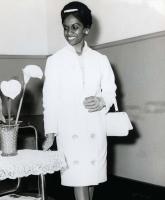Ana Maria Mascarenhas
Articles tagged with Ana Maria Mascarenhas
Tag Archive
- 2022
- 25 april
- african culture
- afrobeat
- Angolan Journalist
- angolanidade
- António Pinto Ribeiro
- archive
- Artes africanas
- bairro
- being mixed
- Berlim
- Bibliotera
- Bienal de S.Paulo
- Bruno Pereira
- Cabo-Verde
- Cape Verde
- Cape Verdean
- Cape Vert
- Carola Saavedra
- cinema indígena
- Claire Andrade-Watkins
- Comité Invisível
- composer
- comunidade
- Conceição Evaristo
- cotton or oil
- creolo
- critica
- cultural spaces
- Danças africanas
- David Adjaye
- debate
- descolonização
- Desert Travel
- Djaimila Pereira de Almeida
- Doc's Kingdom
- Empresas
- Epistemodiversity
- Euridice Kala
- european parliament
- exile
- Filhos da Meia
- fotography
- geological phenomena
- Gérard Quenum
- historicism
- humanism
- Jamaica
- Joana gomes
- Jorge Barbosa
- journeys
- JSF#2
- Julie Dash
- kilimanjaro
- kriolu
- language diversity
- Lisbon
- Luso-Tropicalism
- Mamadou Ba
- Mamadou Soumare
- Marcelo Ridenti
- Maria Vlachou
- Memories of the Poisoned River
- migratory politics
- Modernity
- Monte da Caparica
- My Kaaba is HUMAN
- nástio mosquito
- Nova Lisboa
- Nuno (Boaventura) Miranda
- pan African & arts festival
- paris conference
- postcolonial
- Postmemory
- practices of resistance
- reflecting Achille Mbembe
- Ricardo Farinha
- Roberto Conduru
- romance
- sello pesa
- semba
- Sené Absa
- Sertões
- short filme
- silence
- solidarity network
- South Africa
- stereotypical images
- subjectividade
- territory
- the great migration
- theater
- todos festival
- tourism
- Toussaint Louverture
- Vazante
- Violence against civilians in nigeria
- Visuality
- writer
 Her compositions were first known only in a small inner circle, but with the Luanda Song Festival, her work became known to a wider public. In the 60s she had formed a duo with the Portuguese journalist Adelino Tavares da Silva, who had just arrived in Angola. They composed four or five songs together and then registered in the Portuguese Writers’ Association, with Adelino as songwriter and Ana Maria as composer. It can be said that the duo revolutionised the Song Festival, when Maria Provocação was performed by Sara Chaves and Mulata é a Noite by Concha de Mascarenhas. They were both accompanied by Ngola Ritmos, the Angolan rhythm group.
Her compositions were first known only in a small inner circle, but with the Luanda Song Festival, her work became known to a wider public. In the 60s she had formed a duo with the Portuguese journalist Adelino Tavares da Silva, who had just arrived in Angola. They composed four or five songs together and then registered in the Portuguese Writers’ Association, with Adelino as songwriter and Ana Maria as composer. It can be said that the duo revolutionised the Song Festival, when Maria Provocação was performed by Sara Chaves and Mulata é a Noite by Concha de Mascarenhas. They were both accompanied by Ngola Ritmos, the Angolan rhythm group. 